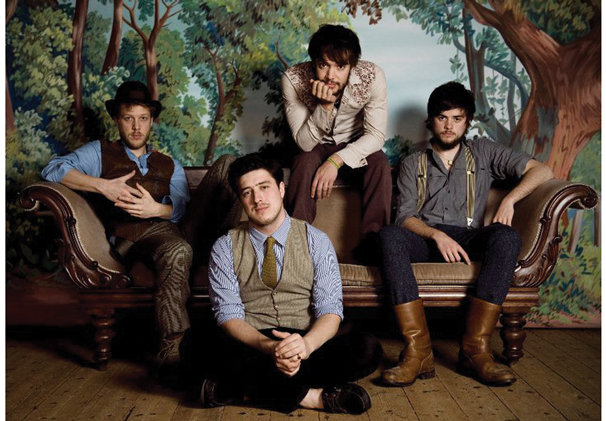The popularity of Mumford & Sons seems inexplicable in a culture that claims to celebrate authenticity and originality. Within several years, the band already staked their claim as the most pretentious of all bands to have ever garnered such acclaim. With every incoherent rant masquerading as a profound folk ballad, one comes to recognize that they may well usurp the throne long occupied by U2.
Intellectual complexity, of course, is always desirable in music, but Mumford & Sons are so disingenuous with their words that their supposed complexity is simply a facade. Frontman Marcus Mumford would have you believe that “The Cave” celebrates self-reliance as an expedient to attaining selfhood, but even a cursory examination of the lyrics demonstrates that it is the most verbose and arrogant breakup letter ever written.
In that regard, Mumford & Sons are not much different from Taylor Swift, who at least states precisely what she means and does not attempt to evade comprehension. Mumford & Sons, in contrast, strive to conceal their triviality with an endless obscurity that yields to scrutiny.
Inauthenticity has plagued rock music since its beginning and still remains pervasive across genres in the industry today. Disingenuous artists are generally tolerable nuisances, but they become something insidious when their work claims to possess a truth and a profundity that it does not have. Among contemporary acts, Mumford & Sons are a prime example of such inauthenticity.
— Christopher Feldsine
























































































































































